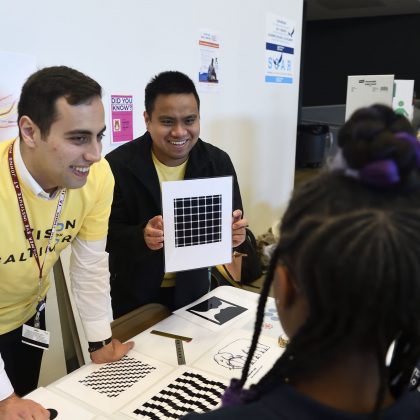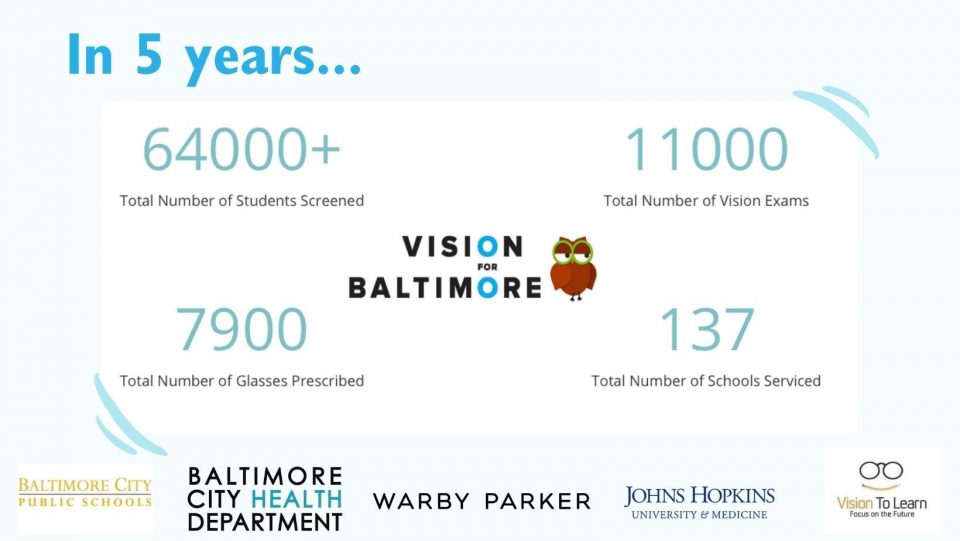Vision for Baltimore
 Vision for Baltimore (V4B) is a citywide, collaborative school-based vision program launched in Spring 2016. The program was started after a large need for eye care and eyeglasses was recognized during a prior research study, the Baltimore Reading and Eye Disease Study (BREDS).
Vision for Baltimore (V4B) is a citywide, collaborative school-based vision program launched in Spring 2016. The program was started after a large need for eye care and eyeglasses was recognized during a prior research study, the Baltimore Reading and Eye Disease Study (BREDS).
Established to improve children’s access to eye care and academic performance, the program provides vision screenings, eye exams, and eyeglasses to thousands of children in Baltimore schools.
As part of the program:
- The Baltimore City Health Department (BCHD) expanded vision screening services, which now includes all children in prekindergarten through eighth grade in Baltimore City Public Schools. Prior to V4B, only children in prekindergarten, first and eighth grade received screenings.
- Vision To Learn (VTL) conducts students’ eye exams in the V4B Mobile Eye Clinic at schools.
- Warby Parker provides eyeglasses with multiple, attractive frame options to children with poor vision.
- The Johns Hopkins team engages in vision care educational outreach, assists with program operations, and conducts research to evaluate the impact of eyeglasses on children’s academic performance.
In the first three years of the program, the BCHD screened over 55,000 children in 140 schools across Baltimore. VTL conducted over 9000 eye exams in its mobile clinic. 7000 children received eyeglasses, of which approximately 25% received replacement eyeglasses.
For its fourth year, Vision for Baltimore is revisiting the 44 schools that were initially screened in Year 1. We will continue to provide vision screenings, eye exams, and eyeglasses to all children in grades pre-kindergarten to eighth grade.
Vision for Baltimore serves as a replicable model for other national groups interested in delivering school-based eye care. Current research efforts include a cost analysis of the program to evaluate the expense of school-based eye care delivery and the accuracy of the different screening strategies. Focus groups with parents and teachers were also held to identify and address important barriers to school-based health programs.